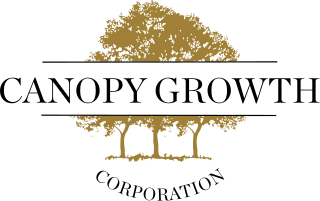
The Liquor Control Board of Ontario (LCBO) is a Crown agency that retails and distributes alcoholic beverages throughout the Canadian province of Ontario. It is accountable to the Legislative Assembly through the minister of finance. It was established in 1927 by the government of Premier George Howard Ferguson to sell liquor, wine, and beer. Such sales were banned outright in 1916 as part of prohibition in Canada. The creation of the LCBO marked an easing of the province's temperance regime. By September 2017, the LCBO was operating 651 liquor stores.

The Oregon Liquor and Cannabis Commission (OLCC), formerly known as the Oregon Liquor Control Commission, is a government agency of the U.S. state of Oregon. The OLCC was created by an act of the Oregon Legislative Assembly in 1933, days after the repeal of prohibition, as a means of providing control over the distribution, sales and consumption of alcoholic beverages. To this end, the agency was given the authority to regulate and license those who manufacture, sell or serve alcohol.

Cannabis in Canada is legal for both recreational and medicinal purposes. Cannabis was originally prohibited in 1923 until medicinal use of cannabis was legalized nationwide under conditions outlined in the Marihuana for Medical Purposes Regulations issued by Health Canada, which regulated medical cannabis effective 30 July 2001, and was later superseded by the Access to Cannabis for Medical Purposes Regulations, which also permitted seed, grain, and fibre production under licence by Health Canada.

The Nova Scotia Liquor Corporation (NSLC) is the Crown corporation which controls sales of alcoholic beverages and recreational cannabis in Nova Scotia, Canada. It is the sole distributor for these products and runs all retail outlets selling alcohol and cannabis products. The exceptions are for four private retailers in urban HRM offering beer, wine, and spirits, and, in rural areas where there is not an NSLC location, 65 "agency" liquor stores operated by private retailers on NSLC's behalf.

Colorado Amendment 64 was a successful popular initiative ballot measure to amend the Constitution of the State of Colorado, outlining a statewide drug policy for cannabis. The measure passed on November 6, 2012, and along with a similar measure in Washington state, marked "an electoral first not only for America but for the world."

Canopy Growth Corporation, formerly Tweed Marijuana Inc., is a cannabis company based in Smiths Falls, Ontario.

A cannabis retail outlet is a location at which cannabis is sold or otherwise dispensed, either for recreational or for medical use.
Tokyo Smoke is a Canadian recreational cannabis retail brand owned by OEG Inc. that operates in the provinces of Manitoba, Ontario, Newfoundland and Labrador, and Saskatchewan. It was co-founded by father and son Lorne and Alan Gertner in 2015.

The Cannabis Act is a law which legalized recreational cannabis use in Canada in combination with its companion legislation Bill C-46, An Act to Amend the Criminal Code. The law is a milestone in the legal history of cannabis in Canada, alongside the 1923 prohibition.

Cannabis in Alberta became legalized on October 17, 2018 following the coming into force of federal Bill C-45. Production, distribution and consumption of cannabis had been prohibited in Canada since 1923. While some other provinces distribute cannabis through publicly owned retail monopolies, Alberta allows private companies to sell cannabis at licensed retail storefronts and online. Private retailers must purchase cannabis from the provincial wholesaler, the AGLC. Originally, the Alberta government was the sole entity permitted to retail cannabis online within the province but as of March 8, 2022, private retailers are permitted to do so and the province has since exited the retail business.

Cannabis in Ontario is legal for both medical and recreational purposes. Cannabis in Canada has been legal for medicinal purposes since 2001 under conditions outlined in the Access to Cannabis for Medical Purposes Regulations, issued by Health Canada, while seed, grain, and fibre production are permitted under licence. The federal Cannabis Act, legalizing cannabis for recreational use, came into effect on 17 October 2018.

Cannabis in Nunavut, as in the rest of Canada, became legal for recreational use on the effective date of the Cannabis Act on 17 October 2018.

Cannabis in New Brunswick became legal for recreational use when the Cannabis Act went into force across the country on October 17, 2018.

On October 17, 2018, cannabis was legalized in Canada for recreational and medical purposes. It was already legal for medicinal purposes, under conditions outlined in the Marihuana for Medical Purposes Regulations issued by Health Canada, and for seed, grain, and fibre production under licence by Health Canada.

Cannabis in Prince Edward Island became legal when the national Cannabis Act went into force on October 17, 2018.

Non-medical cannabis in Manitoba became legal when the national Cannabis Act went into force on October 17, 2018.

Cannabis in Newfoundland and Labrador became legal when the national Cannabis Act went into force on October 17, 2018.
Cannabis in Yukon became legal when the national Cannabis Act went into force on October 17, 2018.

Cannabis in Saskatchewan became legal when the national Cannabis Act went into force on 17 October 2018.

Cannabis in the Northwest Territories became legal when the national Cannabis Act went into force on 17 October 2018.











